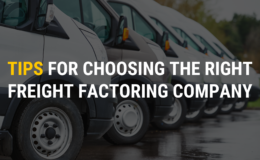Depending on where you stand, the trucking industry is either in a position of power due to customer demands in a booming economy, or feeling a lot of pressure because of a driver shortage. Lately, the demand for flatbed trucks has come to the forefront, with clients ranging from the energy industry to disaster relief scrambling for available vehicles.
Hurricane Season & Flatbed Trucks
June marks the start of hurricane season. The current forecasts up to 14 named storms over the course of the summer. Current infrastructure is not at a level to make our coastlines hurricane-proof, and we are still cleaning up from last year’s storms. Many flatbed trucks are in use in Texas, hauling construction materials and equipment to help rebuild after Harvey hit last year. Flatbeds are also being used to rebuild large parts of Florida, as well. The winter months in the Midwest further tightened the number of flatbeds in use. Since snowstorms all but halted railway freight, flatbeds were used to take the overflow. April marked the start of construction, so any remaining flatbed trucks were diverted from hauling what trains couldn’t to delivering shipments for building projects.
Fracking & Flatbeds
The fracking industry is also relying heavily on flatbed resources. Despite efforts to lock in petroleum prices last year, crude oil prices have doubled in price from what they were two years ago. A part of the reasons was, unfortunately, due to last year’s hurricanes. The sand used in the fracking process is being loaded onto flatbed trucks and are estimated at 2,000 round trips per day to adequately service the Permian Basin in Texas. Incidentally, while the trucking industry benefits from the contracts due to higher crude prices and shipping demands, other markets take a hit, because driving resources are being diverted elsewhere.
Looking To The Future
As things stand, there is no “quick-fix” solution to the lack of available flatbed trucks across the country. Markets outside of construction, fracking, and disaster relief will have to simply wait until projects wind down. Industries such as manufacturing, retail, automotive, and others are starting to shift toward using smaller and mid-sized shippers, even though the cost is usually higher than contracting major trucking companies.






